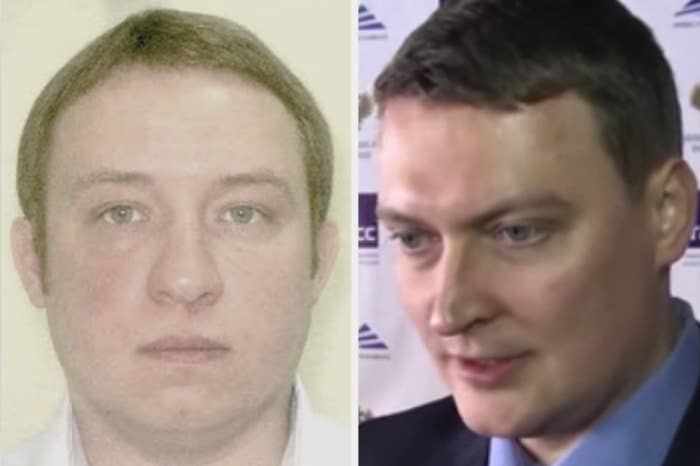
Two men with deep ties to top figures in Russian politics are the voices caught on tape negotiating a proposed oil deal to fund Matteo Salvini’s far-right Lega party, according to new analysis revealed today.
In July, BuzzFeed News uncovered an explosive audio recording of longtime Salvini aide Gianluca Savoini discussing a plan to covertly channel tens of millions of dollars of Russian oil money toward Lega’s upcoming European election campaign. The revelations have rocked Italian politics, and prosecutors in Milan are investigating the proposed deal. But the Russian men heard discussing the plan with Savoini and two other Italians at Moscow’s Metropol hotel last October have remained shrouded in mystery.
Now a joint investigation by BuzzFeed News, the investigative journalism website Bellingcat, and Russian news site the Insider has identified two of the three Russian voices heard on the recording: Andrey Yuryevich Kharchenko and Ilya Andreevich Yakunin. They have links to the high-profile far-right demagogue Aleksandr Dugin and to Vladimir Pligin, a politician deeply enmeshed in President Vladimir Putin’s inner circle.
Dugin is the father of an ideology that Putin has embraced in recent years, which sees a resurgent Russia standing as a bulwark against the liberal west. Pligin played a major role in one of Putin’s most hostile foreign policy moves, working on drafting a law in the country’s parliament certifying the 2014 annexation of Crimea.
Neither Dugin nor Pligin attended the Oct. 18 Metropol meeting, but both were namechecked on the recording. One voice, as yet unidentified, declared that they needed Pligin’s “green light” before moving forward with the negotiations. And the day before the meeting, Dugin was photographed meeting with Savoini, while Salvini reportedly met with the Russian deputy prime minister Dmitry Kozak at Pligin’s office.
The identities of two of the Russian attendees will pile renewed pressure on Salvini, Europe’s most powerful far-right leader, to explain whether he had any knowledge of the proposed deal or of the involvement of Savoini, a longtime aide who has been described as his "sherpa to Moscow." The new revelations also raise further questions about who was orchestrating the Russian side of the deal — and from how high up in Moscow.
Reached by phone on Monday, Pligin told the Insider: “I have no relationship with these people.” Kharchenko, Yakunin, and Dugin did not respond to multiple requests for comment, or to detailed questions.
Salvini did not attend the Metropol meeting, but he was in Moscow at the time. He has consistently refused to answer questions about whether he knew the meeting was taking place or was aware of the proposed oil deal.
The identities of Yakunin and Kharchenko were established by matching their voices to other recordings. Yakunin’s voice can be heard on an interview he conducted with the Russian TV channel Arkhyz 24 in December 2017. Kharchenko’s voice was captured by The Insider during a telephone call last month.
Analysis by Bellingcat comparing voice intonation, speech mannerisms, and sound frequency has determined with a high degree of confidence that Kharchenko’s and Yakunin’s voices match two of the men on the Metropol tape.
At the Metropol, Yakunin explains why the proposed deal should be structured using known oil companies. While in the clip taken from an interview with Russian television he's talking about regional investments.
The recordings of Yakunin’s voice have been sent to specialists at the National Center for Media Forensics at the University of Colorado Denver for a full forensic analysis. (The audio quality of Kharchenko’s voice on the Metropol tape is not high enough for such an in-depth analysis.)
In this section from the Metropol meeting, Kharchenko talks about the need to discuss the final details of the proposed oil deal. While in the telephone conversation he is talking about his dissertation with a reporter.
BuzzFeed News, Bellingcat, and the Insider also analyzed travel and company records, online and social media activity, and information contained in other databases, to piece together a profile of Yakunin and Kharchenko and their links to Dugin and Pligin.
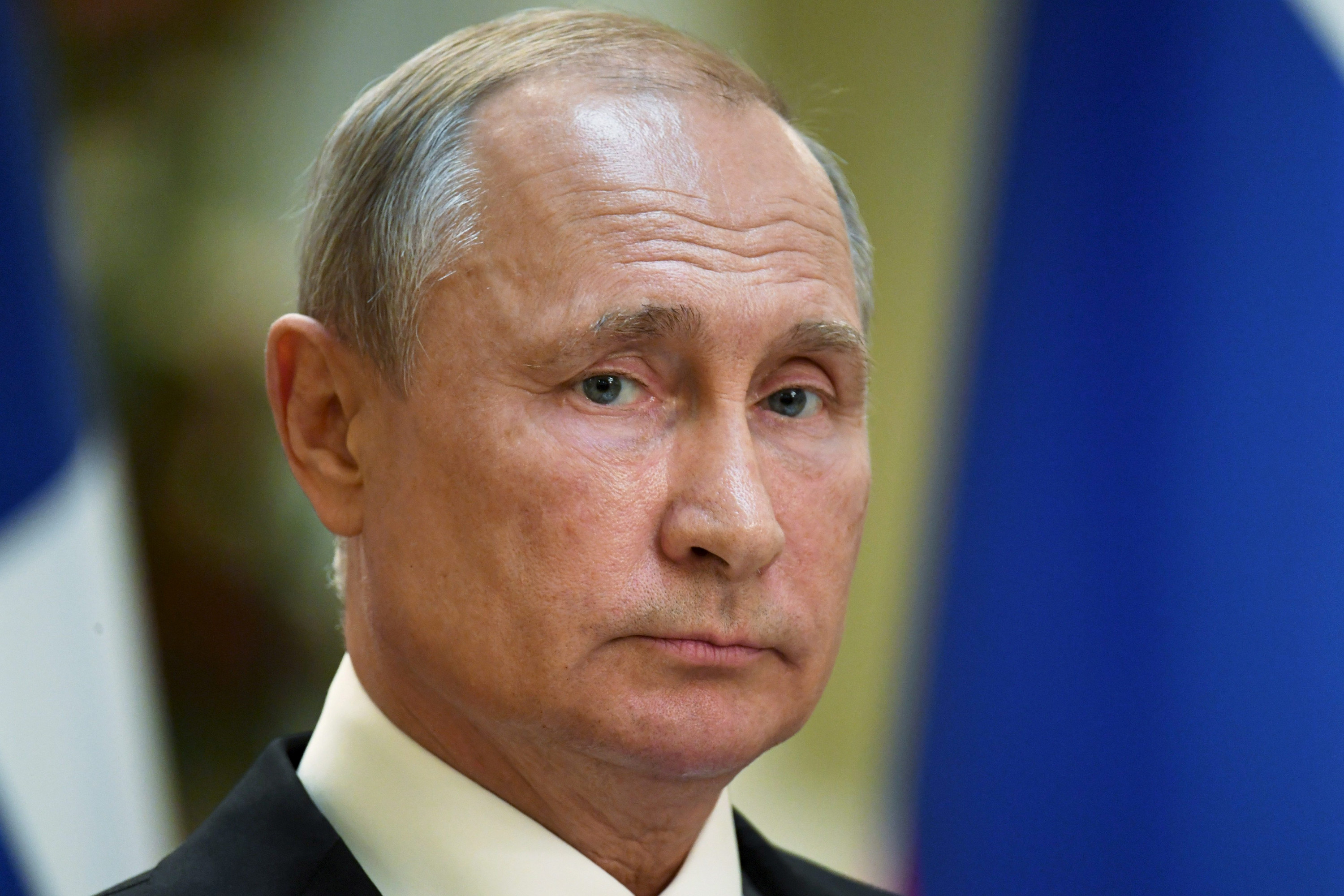
The Italian magazine L’Espresso first reported Yakunin’s name in February, but didn’t provide any further details. BuzzFeed News, Bellingcat, and the Insider can now confirm that it is Yakunin’s voice, which can be heard declaring on the recording that “we are waiting for Mr. Pligin to return” before discussing the proposed oil deal further.
A longtime member of Putin’s United Russia party, Pligin is also a former senior member of parliament. His work on legislation to annex Crimea landed him on a European Union sanctions list. He co-founded a law firm with Deputy Prime Minister Kozak, a powerbroker — known as the “Cheshire Cat” because of his smile — who served as Putin’s chief of staff when he first became president, and who the US recently put on its sanctions list as a “member of the Russian leadership’s inner circle.” Pligin was also a student of Anatoly Sobchak, the former mayor of St. Petersburg known for kickstarting Putin’s political career.
Pligin’s connection to Yakunin goes beyond the Metropol recording. In 2002, Yakunin took up a management position at the Agency of Direct Investments, a firm that focuses on major industries including oil and gas. The firm is controlled by a company that counts Pligin as one of its six founders and shareholders, records show. An employee at the agency told BuzzFeed News that Yakunin no longer works at the company.
The ties to Dugin come from Kharchenko, who has been quoted in Russian media as an employee of Dugin’s far-right political group, International Eurasian Movement.
But other details raise questions about what, exactly, Kharchenko does for a living. His name is nowhere to be found on the organisation’s website, and, according to two sources with access to the information, his tax records for the past five years are empty, showing no official income.
Asked in a brief phone interview with the Insider last month why there was so little information about him online, Kharchenko said that he often published his writings using a pseudonym, but declined to say what it was. This week, BuzzFeed News sent Kharchenko multiple requests for comment on his role at the Metropol meeting. He did not respond.
Kharchenko has traveled with Dugin on a number of foreign trips, including a November 2016 visit to Crimea to host a Turkish delegation, which included an adviser to President Recep Tayyip Erdogan. He also traveled with Dugin to Ankara that same month. On that trip, Kharchenko used a service passport, a document typically given to government or state employees.
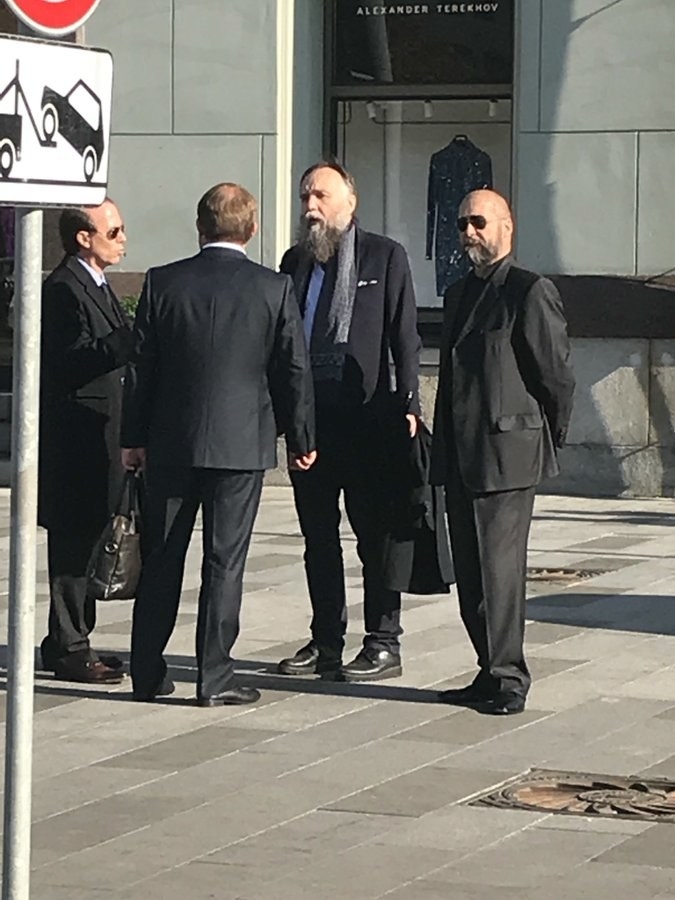
When Dugin met with Savoini the day before the Metropol meeting, an Italian journalist posted a photograph on Twitter showing them standing with another, unidentified man.
There is a high probability that that man, standing with his back to the camera, is Kharchenko, according to a Bellingcat analysis comparing body measurements — such as the length of his arms relative to his height, as well as his posture and hair shape — to other photos of Kharchenko standing next to Dugin. However, because of the lack of specific features in the tweeted image, for example his ears aren't properly visible, it is not possible to provide a definitive forensic match.
Kharchenko, who was born in Azerbaijan in March 1980 but became a Russian citizen 15 years later, is deeply sympathetic to Dugin’s ideology. Dugin even oversaw Kharchenko’s PhD in philosophy. Kharchenko’s 137-page dissertation focuses on the destructive qualities of globalization, cellphones, and selfies.
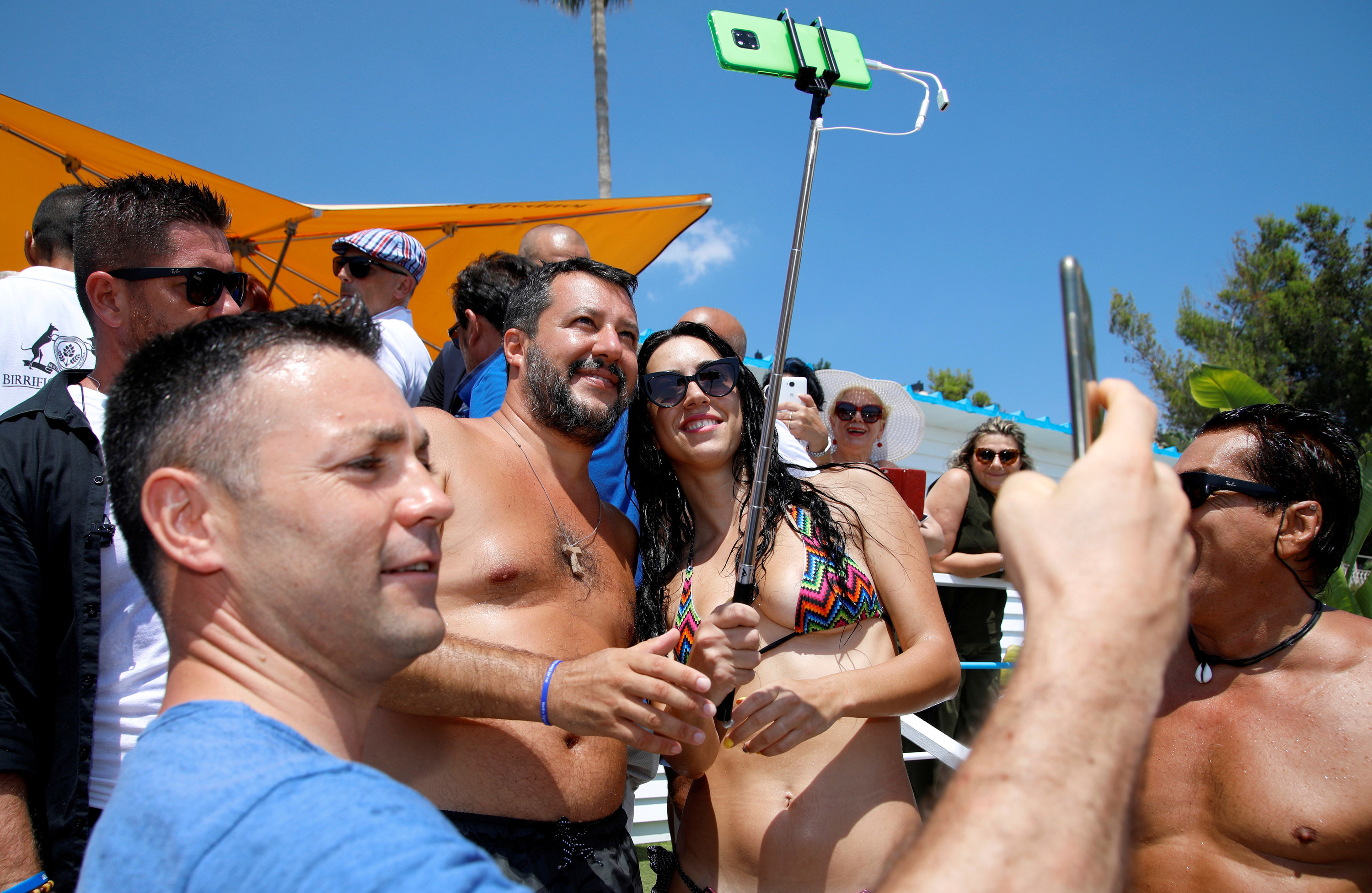
Dugin has longstanding connections to the Russian government. He is the son of a KGB officer, and served as an adviser to Sergei Naryshkin, a former chairman of the State Duma who is now the director of Russia’s Foreign Intelligence Service.
Dugin’s Facebook profile is filled with pictures of the far-right ideologue at events, nationalist posters and slogans, materials promoting his work, and flattering press photographs of nationalist politicians. It also features several images of Salvini and Savoini.
In November 2016, Dugin interviewed Salvini about the election of Donald Trump and the future of Europe. “The EU, being an unnatural structure, has already started crumbling,” Salvini declared. “The European Union is a cell, the opposite of democracy.”
Dugin’s relationship with Savoini, the Salvini aide at the centre of the Metropol scandal, appears to go back even further: Savoini has previously told BuzzFeed News that he has known Dugin for more than two decades. The Facebook page of Lombardy-Russia, the pro-Kremlin organisation led by Savoini, is packed with photos of the two men together.
On the Metropol recording, Savoini can be heard telling the other Italians that “Aleksandr” had described Savoini as the “total connection” between the Italian and Russian sides — an apparent reference to Dugin.
Savoini also met with Dugin in Rome on Sept. 25, just a few weeks before the meeting. His flight booking records suggest that he was booked on Aeroflot flight SU2404, from Moscow to Rome, the previous day.
While much of Kharchenko’s background remains a mystery, a lot more can be pieced together about his counterpart Yakunin, who has ties to the influential politician Pligin.
A LinkedIn profile claiming to belong to Yakunin suggests that he attended the Moscow State Institute of International Relations, which was once dubbed the “Harvard of Russia” by Henry Kissinger. The university is run by the Ministry of Foreign Affairs and is well-known for educating the country’s top diplomats, as well as its spies.
Yakunin has spent much of his career working for firms with strong links to the Russian state. According to one news report, he has worked closely with some of Russia’s biggest companies, including Gazprom and Russian Railways. In 2016, he was appointed deputy director general of the North Caucasus Development Corporation, a firm created to attract investments and implement major infrastructure projects in the region. It was founded in 2010 by Vnesheconombank, a state-funded development bank under US Treasury sanctions and which has been accused of supporting the regime of Syrian President Bashar al-Assad. Two years ago the bank transferred control of the corporation directly to the Russian state.
An employee at the North Caucasus Development Corporation told BuzzFeed News that Yakunin no longer worked there.
More recently, Yakunin has referred to himself as the deputy director general of a new company called the Eurasian Trade and Logistics Centre. Records show that the company was created in February 2018. Its director Vladimir Georgievich Sobinsky, is a member of the United Russia party and an influential politician in Karelia, a region in the country’s northwest.
One of the centre's shareholders is a company controlled by the Russian conglomerate Sistema, a multi-billion dollar investment company listed on the London Stock Exchange and run by the billionaire Vladimir Yevtushenkov.
Reached by phone on Monday, a spokesperson at the centre told BuzzFeed News that Yakunin doesn’t work there, and hung up.
Sistema did not respond to requests for comment.
When Yakunin can be heard on the Metropol recording saying that “we are waiting for Mr. Pligin to return,” it is not clear where he is waiting for Pligin to return from. Pligin’s exact role in the affair, if any, is not yet known.
Elsewhere on the recording, Russian voices can be heard referring to “yesterday’s meeting,” and discussing how they would have to feed details back to the “deputy prime minister” — details that would seem to line up with the alleged meeting between Salvini and Deputy Prime Minister Kozak held at Pligin’s office, which L’Espresso reported in February.
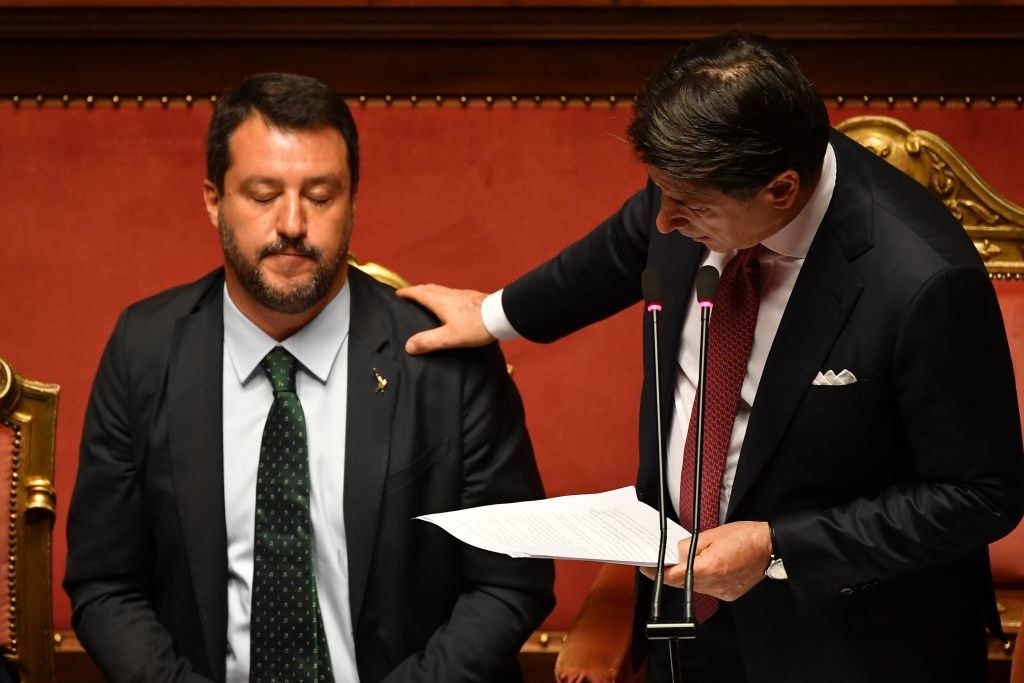
Salvini has not denied the Kozak-Pligin meeting, saying instead he simply couldn’t recall. “I can’t remember what I did the day before yesterday,” he said in an Italian television interview. “It’s hard to remember what I did on October 17.”
He added: “If the meeting did take place, it would be absolutely legitimate, and indeed proper.” Kozak has previously denied that he participated in the meeting.
Italian prosecutors announced after the BuzzFeed News revelations that they were looking into whether Savoini and the two other Italians at the meeting had engaged in “international corruption.” In August, BuzzFeed News, Bellingcat, and the Insider revealed that Savoini travelled to Russia at least 14 times in 2018, and that a member of Salvini’s staff was booked on the same Aeroflot flights as Savoini from Milan to Moscow on Oct. 16 and on the evening of Oct. 18, following the meeting at the Metropol that morning.
These revelations have come at the same time the Italian government has spun into crisis and collapsed, after Salvini pulled the plug on his coalition with the populist Five Star Movement. Prime Minister Giuseppe Conte said he would step down, and during his resignation speech lambasted Salvini over his refusal to address parliament about the Metropol revelations or share any information about it with Conte’s office.
Salvini has tried to force a snap election, but that looks to have failed. The Five Star Movement is now on the brink of forming a new government with the centre-left Democratic Party, a move that would see Salvini lose his job as deputy prime minister and interior minister.
Salvini has refused to answer an avalanche of questions from MPs and reporters about what he knows of the meeting. He and Savoini did not respond to requests for comment for this article.
Aside from Savoini, two other Italian men attended the Metropol meeting. Both men — an international lawyer Gianluca Meranda and Francesco Vannucci, a consultant and banking expert — have come forward since the recording was exposed. They both deny wrongdoing and say a deal was never completed.
Only one man from that meeting remains unidentified: A third Russian man, referred to as “Yuri.”



